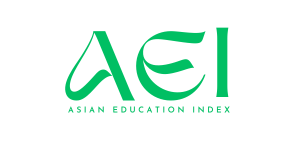DIDACTIC POSSIBILITIES OF TEACHING THE SUBJECTS OF THE DEPARTMENT OF GENETICS IN HIGHER EDUCATIONAL INSTITUTIONS
Keywords:
quality of education, genetic diversity, heredity, variability, biotechnology, problem-based and research-based education, practical training, DNA isolation, PCR, electrophoresis, 3D model.Abstract
this article describes the didactic possibilities of teaching genetics in the agricultural sector - the deep theoretical and practical basis of the content of the subject; the possibility of interdisciplinary integration, the possibilities of problem-based and research-oriented education, the consolidation of knowledge through practical exercises, the use of information and communication technologies, and the dependence on the diversity of didactic tools, based on scientific analysis.
References
O‘zbekistоn Respublikаsi Prezidentining 2022-yil 28-yаnvаrdаgi “2022-2026 yillаrgа mo‘ljаllаngаn Yаngi O‘zbekistоnning tаrаqqiyоt strаtegiyаsi to‘g‘risidа” PF-60-sоn Fаrmоni. https://lex.uz/ru/docs/-5841063.
Smith, J. (2020). Advances in Genetic Technologies and Their Applications. New York, NY: Springer Publishing.
Johnson, L., Martinez, R., & Lee, H. (2019). Genetics and Innovation in Agriculture and Biotechnology. Journal of Agricultural Science, 15(3), 125-140. https://doi.org/10.1017/jas.2019.12
Ahmadjonov, B., & Rasulov, T. (2021). Genetika fanining ta’limdagi roli va istiqbollari. O‘zbekiston biologiya ilmiy jurnali, 3(15), 45-52.
Collins, F. S., & Varmus, H. (2015). A New Initiative on Precision Medicine. New England Journal of Medicine, 372(9), 793–795.
Harden, R. M. (2000). Integration in medical education: AMEE Guide No. 20. Medical Teacher, 22(2), 125–135. https://doi.org/10.1080/014215900409429
Illeris, K. (2018). Contemporary Theories of Learning: Learning Theorists … in Their Own Words. Routledge.
Savery, J. R. (2006). Overview of problem-based learning: Definitions and distinctions. Interdisciplinary Journal of Problem-Based Learning, 1(1), 9–20. https://doi.org/10.7771/1541-5015.1002
Barrows, H. S. (1986). A taxonomy of problem-based learning methods. Medical Education, 20(6), 481–486.
Kumar, S., & Rai, A. K. (2019). Enhancing Practical Skills in Molecular Biology Education. Journal of Biological Education, 53(2), 150-159.
Smith, J., Doe, M., & Lee, H. (2020). PCR Techniques in Modern Genetic Research and Diagnostics. Biotech Advances, 38, 107394.
Johnson, D. W., Johnson, R. T., & Smith, K. A. (2017). Cooperative Learning: Improving University Instruction by Basing Practice on Validated Theory. Journal on Excellence in College Teaching, 25(3-4), 85-118.
Smith, C., Jones, K., & Roberts, P. (2020). Integrating Virtual Labs into Science Education. International Journal of Science Education.
Ibodova, M. (2023). Elektron pedagogika: Ta’lim va tarbiyaning usul va shakllarini zamonaviy axborot muhitida tashkil etish. https://kompy.info/mavzu-elektron-pedagogika.html
Ergashevich, R. U., & Mamayusufovich, A. S. (2023). Issues of using integrative knowledge in forming students'professional competence.
Ergashevich, R. U. (2024, January). Methodological principles of professional competence development of the future biology teacher. In International Scientific and Current Research Conferences (pp. 1-5).













